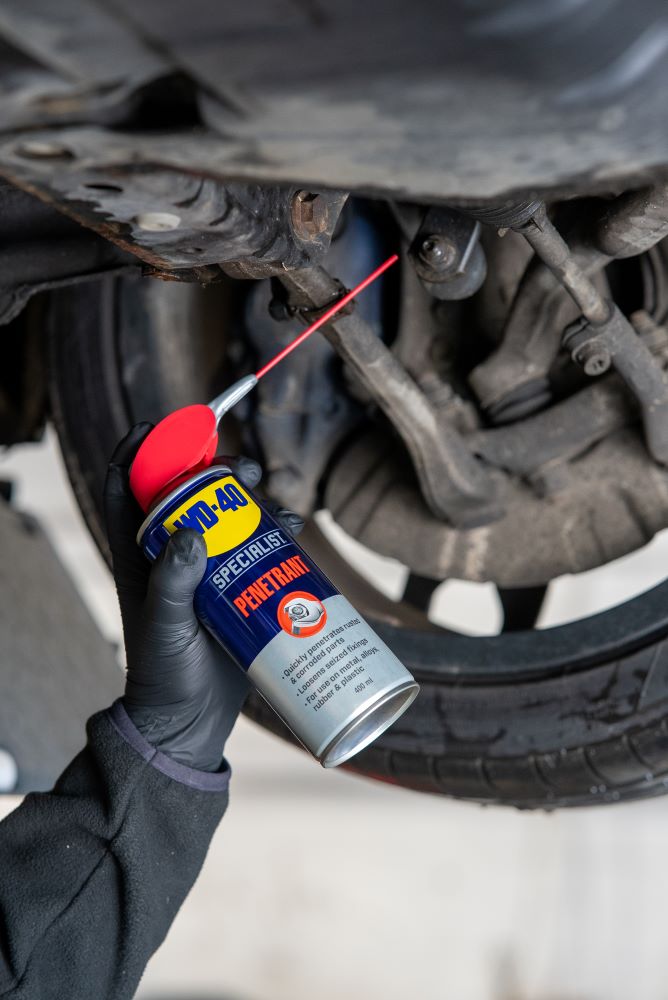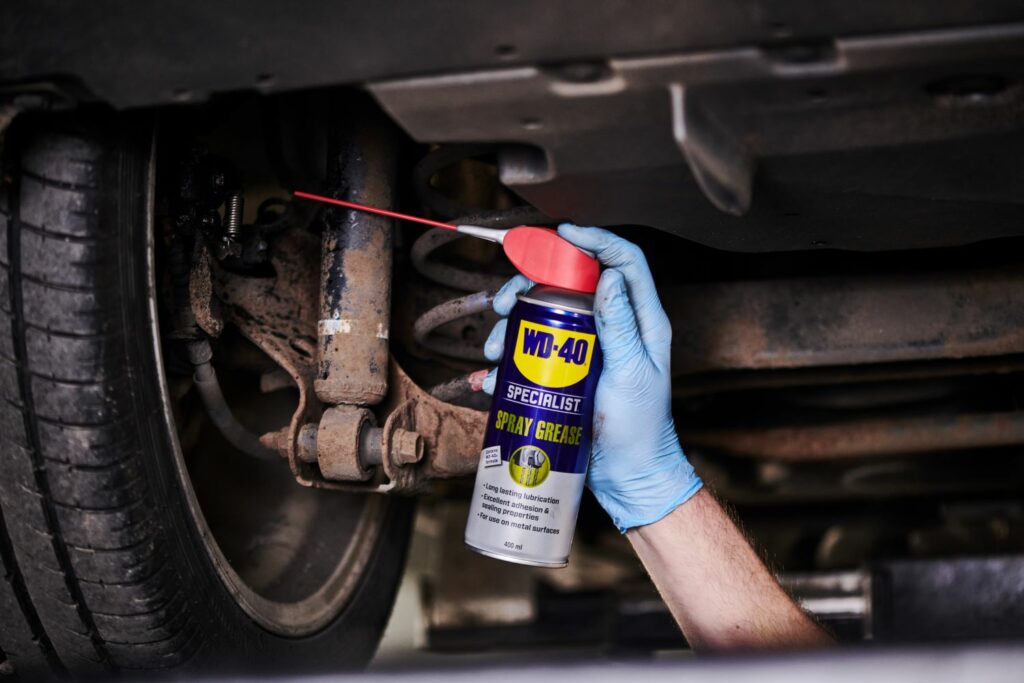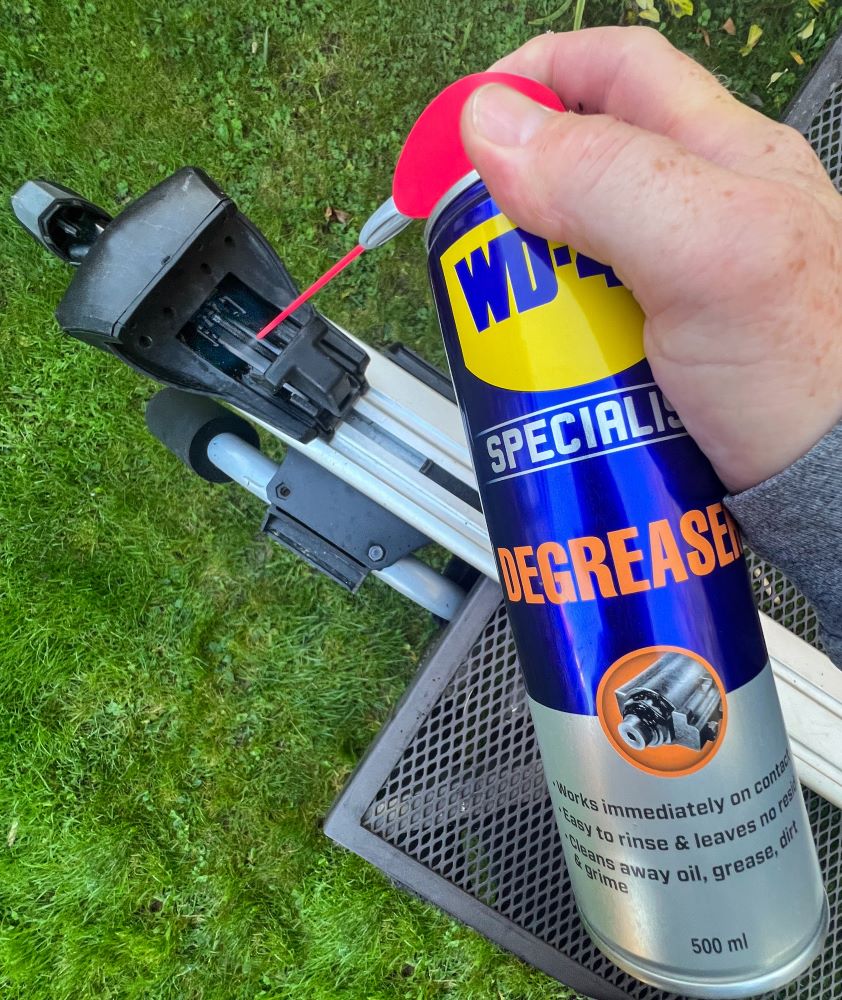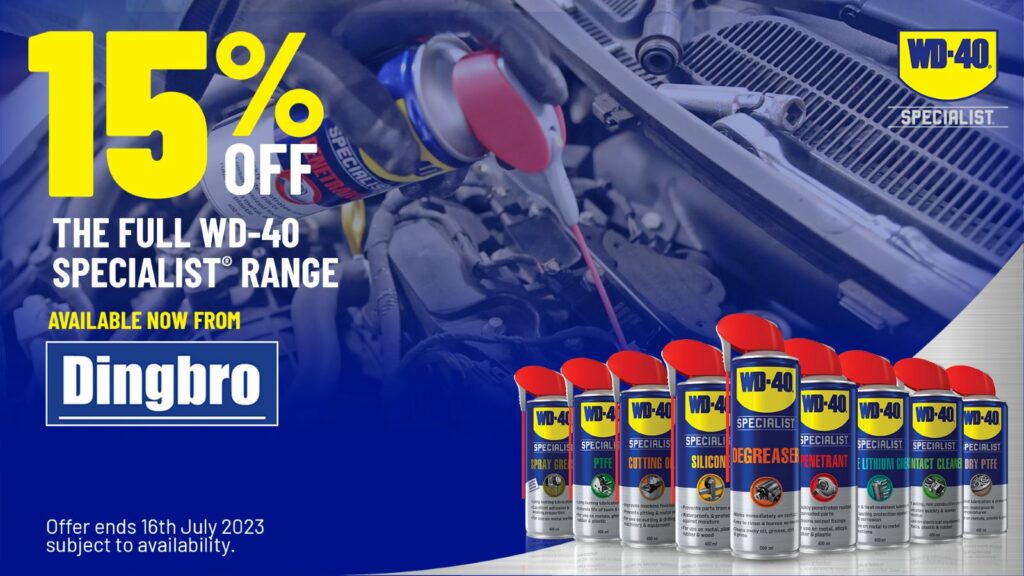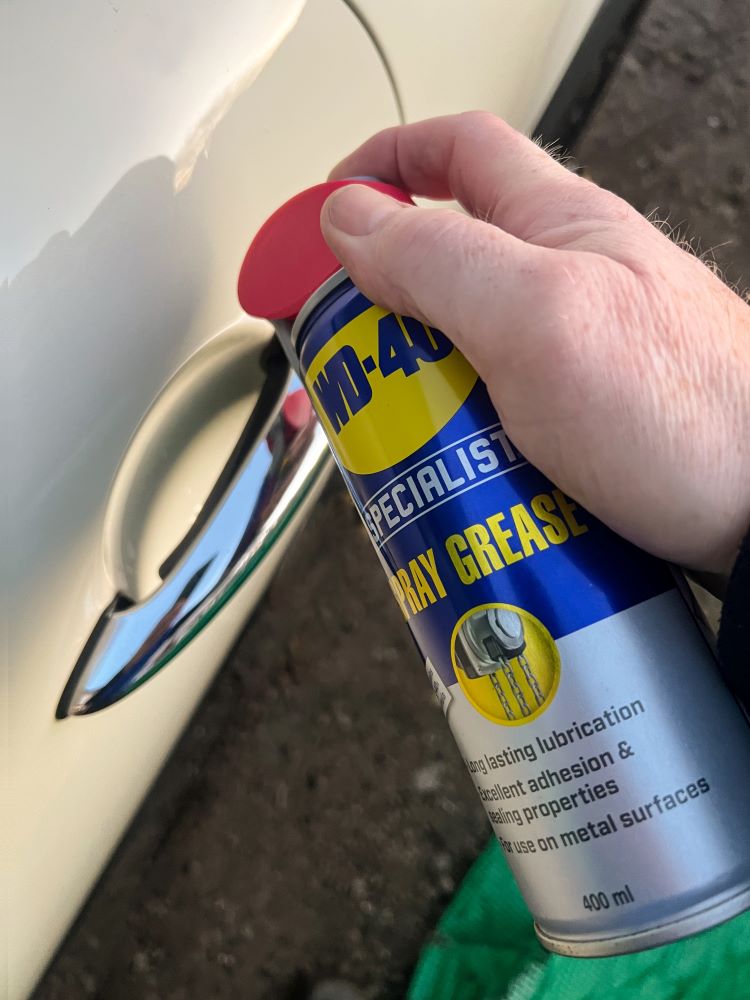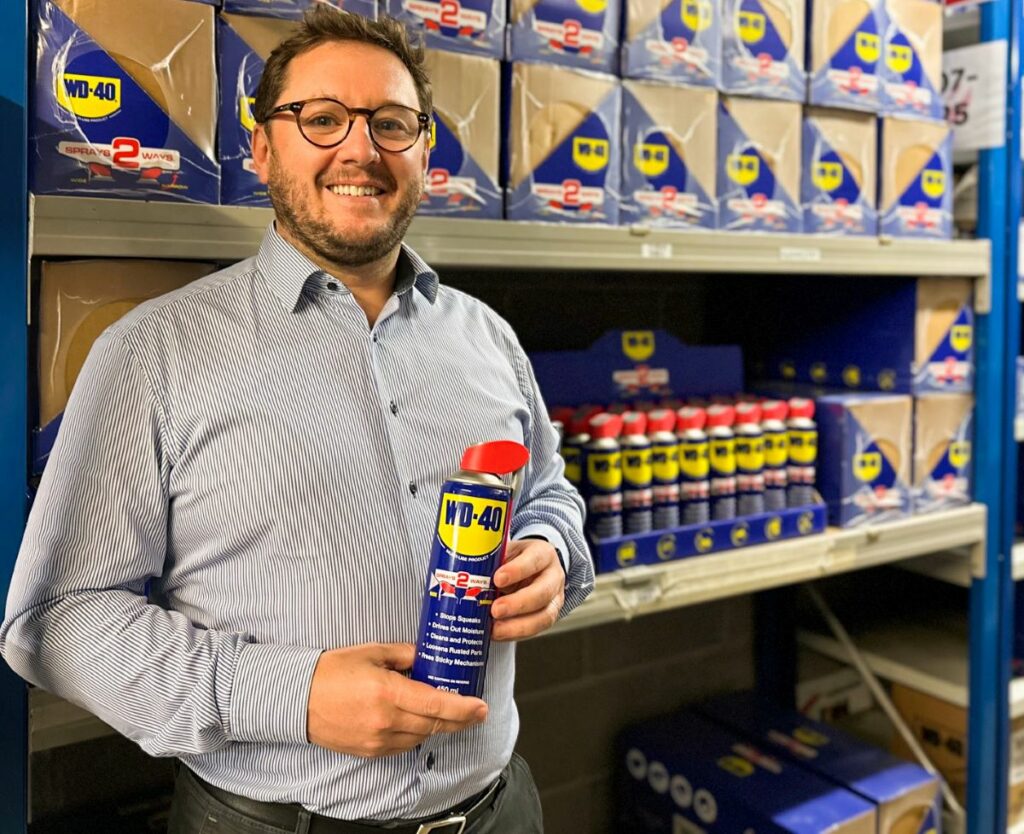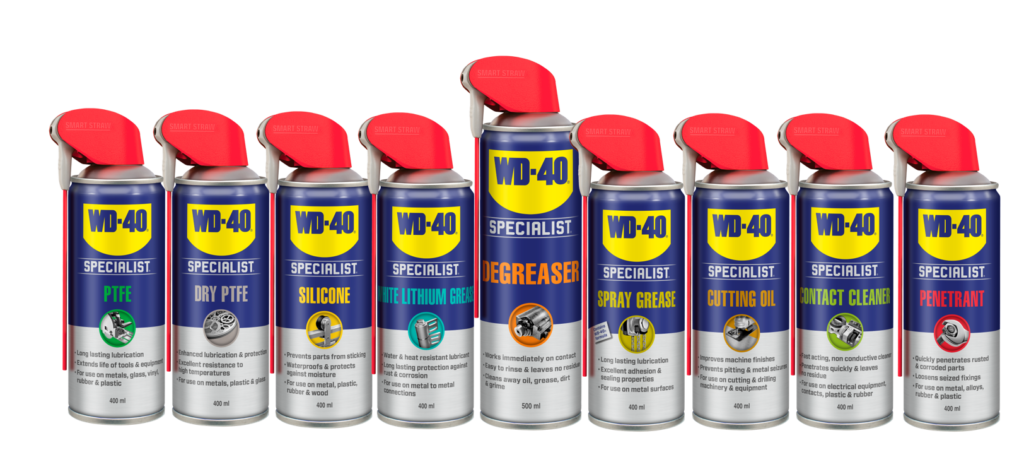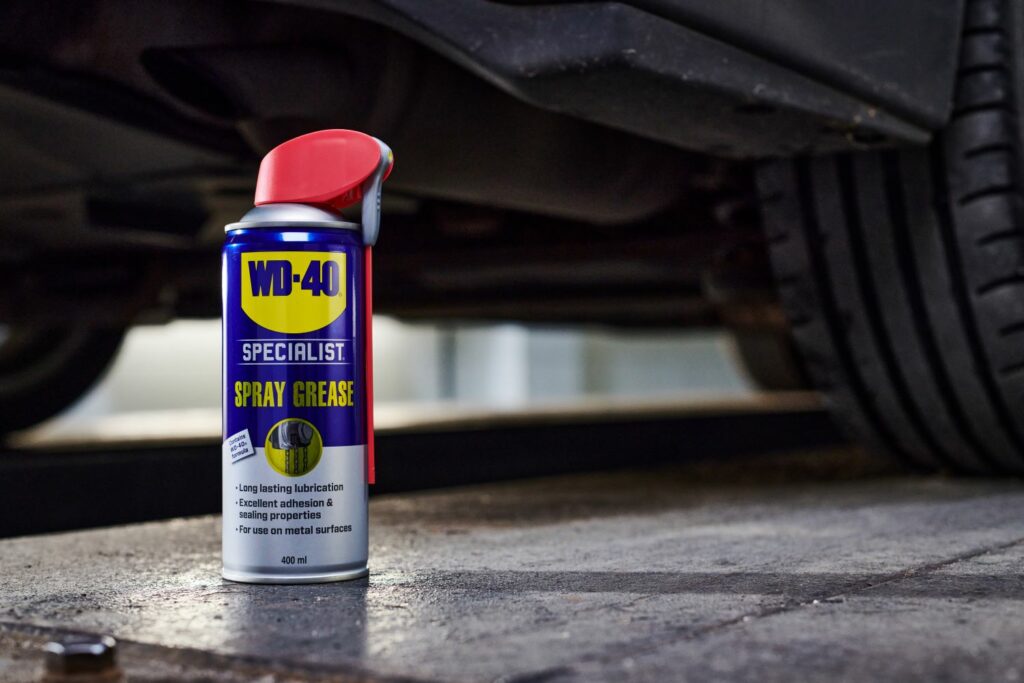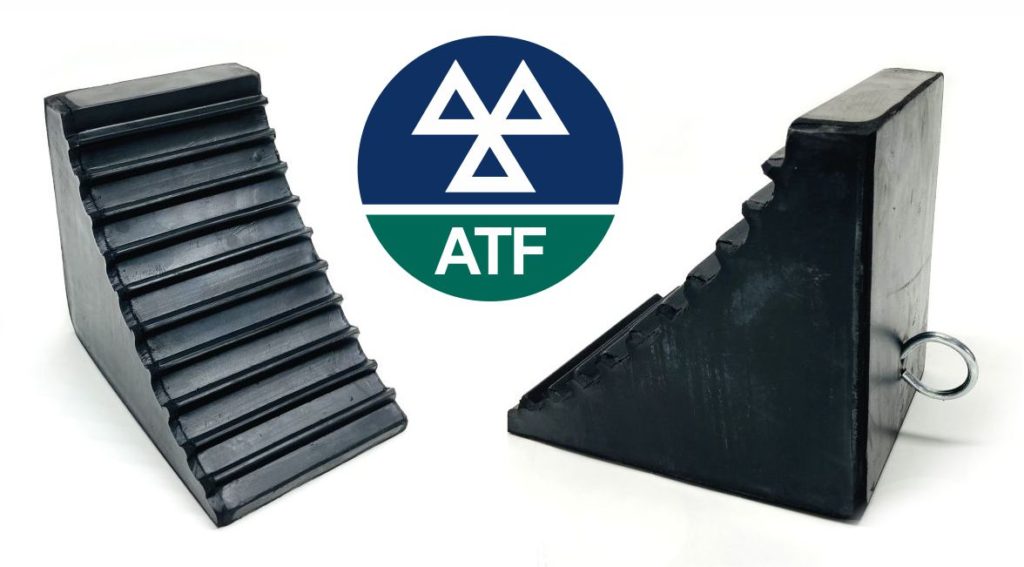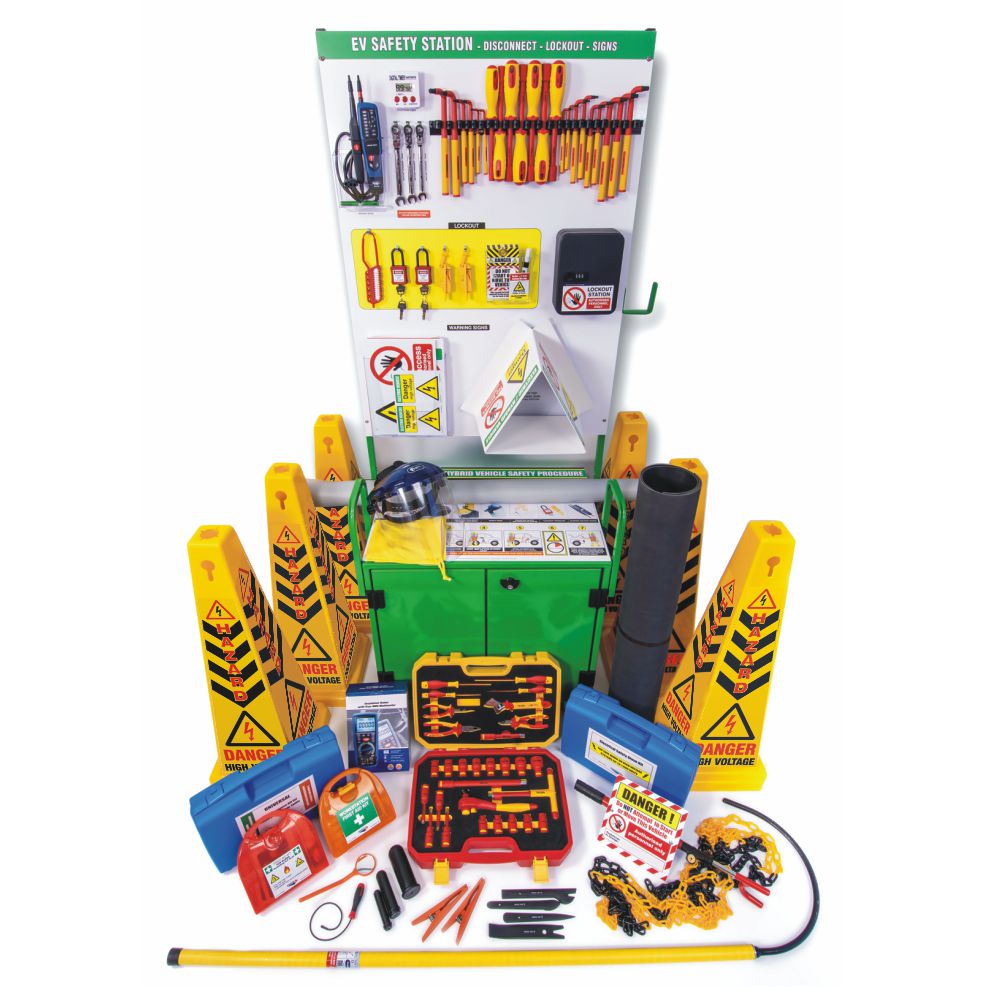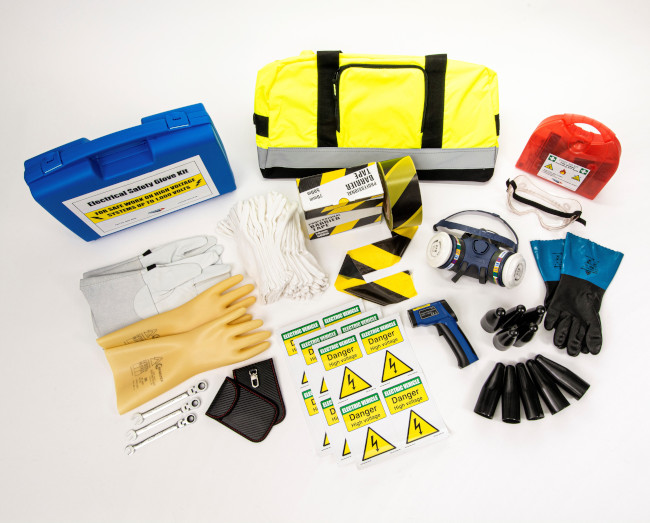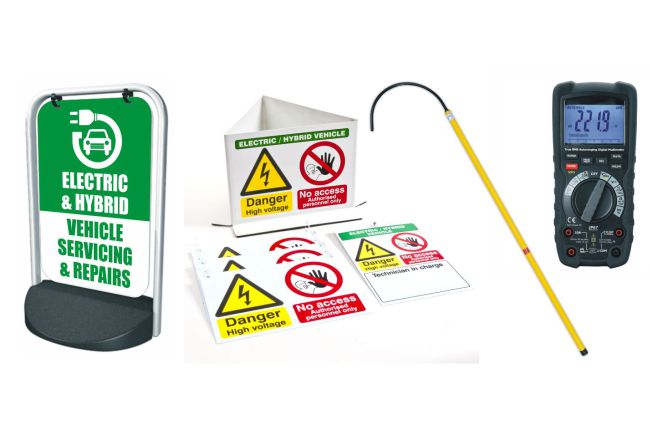One of the key reasons why a car’s battery will falter is down to the connectors that mysteriously become loose or corroded.
Corroded or loose battery connectors will mean the vehicle’s charging system will struggle to recharge efficiently and start. There are really no excuses for owners of cars with batteries clearly visible within the engine bay to check for signs of corrosion as regularly as checking oil and water levels.
And for those that have corrosion or, as with those batteries on older cars, the build-up of lead sulfate crystals, the simple remedy is to clean it and that’s where WD-40 Specialist Contact Cleaner wins hands down. It’s a non-conductive cleaner with a special formula that penetrates hard to reach areas and dries extremely quickly without leaving a sticky residue. It tackles oil, water and corrosion and is easily applicable.
Simply turn off the ignition to ensure there’s no electrical current being discharged, spray the area and, wearing protective gloves and eye protection, wipe away.
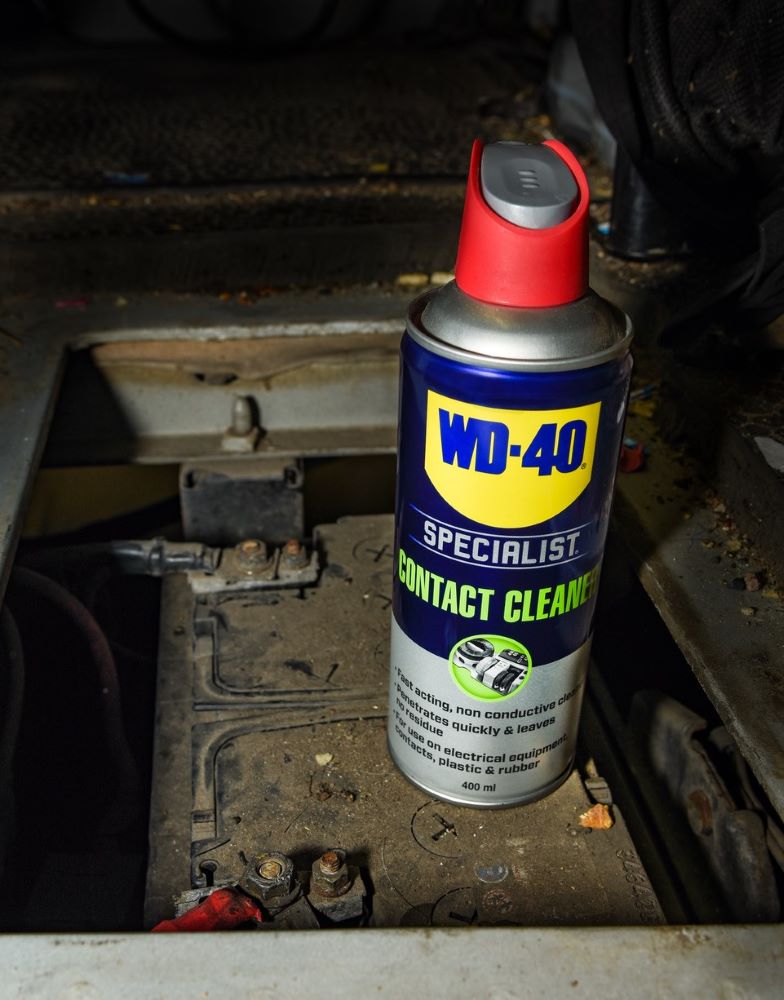
The main reasons why a vehicles’ battery will faulter are human error including leaving headlights and heating systems on. Faulty re-charging ie, the vehicle’s alternator unit that charges the battery while in use packs up or even excessive short drives. In other words, constant short drives means that the vehicle fails to replenish the power used to start and run the vehicle. keeping the battery in the best possible working order can prevent failure when needed most.


